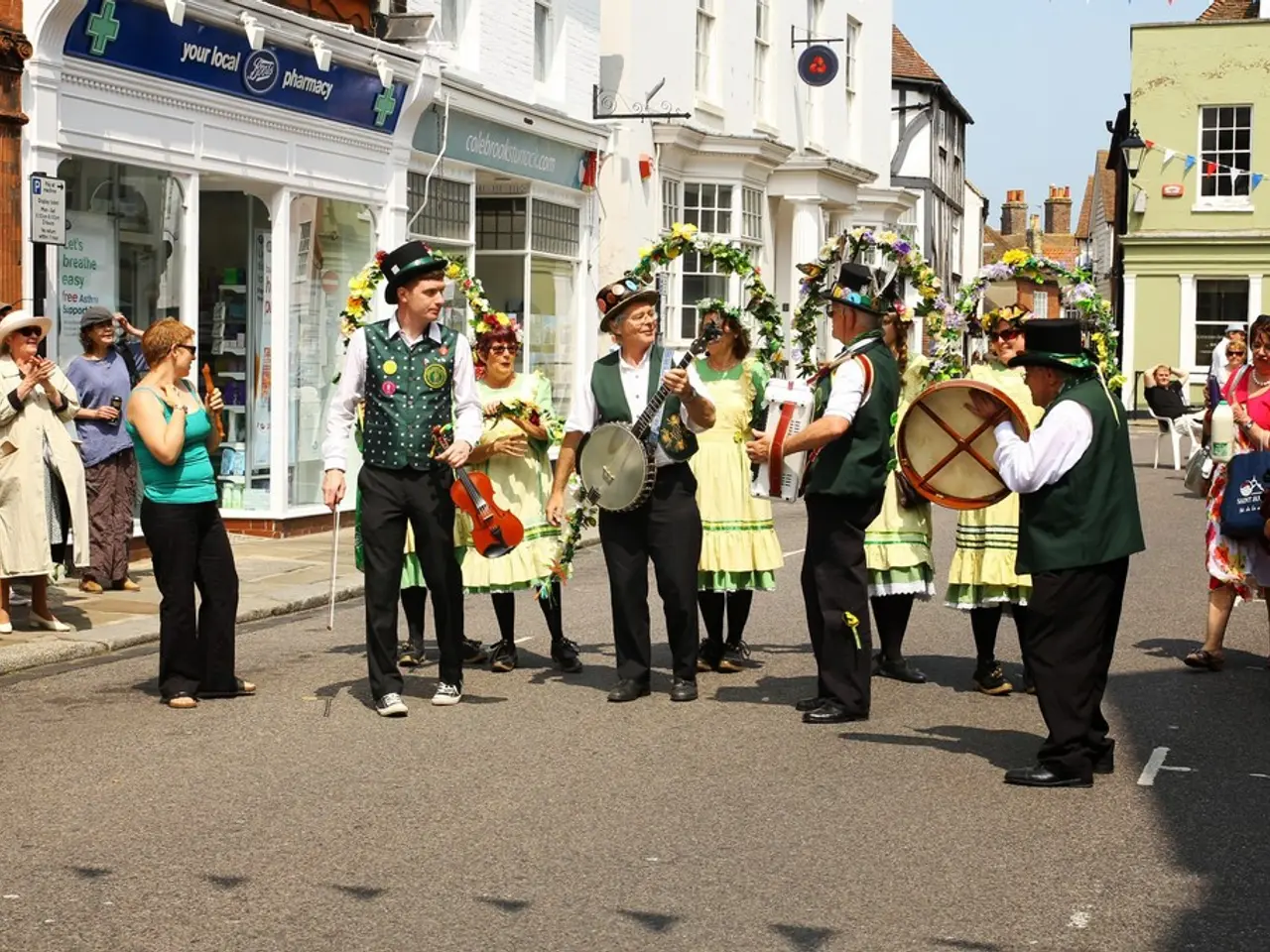In the intersection of historic and modern Berlin, Urban-Eck emerges as Kreuzberg's final authentic pub remaining.
In the heart of Kreuzberg, at the corner of Graefestraße and Urbanstraße, lies the Urban-Eck pub – a cultural icon that has been serving the community for over four decades. Originally run by migrant hands, the pub has been a beacon of unity, bringing together old and new Berlin residents through weekly jam sessions and shared experiences. Over the years, it has witnessed many romances and births, becoming an integral part of the local fabric. Salah Mjahed, a 70-year-old migrant who came to Berlin in the 70s and has been living in Germany for over 50 years, took over the Urban-Eck pub in 1985. Mjahed, who initially worked as an electrician and lived in the Werner-Düttmann settlement, saw the pub as an opportunity to provide for his family. However, Mjahed faced challenges, including resistance from guests who didn't appreciate an Arab behind the bar. He also had to listen to moral lectures from other migrants about selling alcohol as a Muslim. Despite these obstacles, Mjahed persevered, knowing everyone by their first name and even driving someone home after arguments. The Werner-Düttmann settlement, once a model project, transformed into what resembles a Berlin 'ghetto' by the 2000s, housing refugee families from the Balkan, Palestine, and Kurdish areas. The area, in contrast, has seen gentrification on Graefestraße, with overpriced vintage shops, Japanese fried chicken, and minimalistically designed bakeries replacing the old shops. In 2016, Tarek Mjahed, Salah's son, took over the Urban-Eck pub and introduced changes to keep it running. One of these changes was the installation of a lock cylinder during the Corona period, as the pub had never closed before. The new logo of the Urban-Eck pub features a 'fig hand', a Turkish gesture known to every respectable Kreuzberg kid. The Urban-Eck pub has a savings club where regulars put five euros into a wooden box every week and have a Christmas party every December. It was also a neighborhood meeting point where whole families used to come together to drink. Nikita Vaillant, a freelance journalist and editor who grew up near the Urban-Eck pub, contributed to an article about the Berlin pub legend 'Bierhaus Urban' for the Berliner Verlag within the Open Sources Initiative. However, the search results do not provide information about which journalist specifically wrote the article. The Berlin publisher is open-source, welcoming contributions with relevant content and professional quality standards. The Urban-Eck pub, with its rich history and enduring spirit, continues to be a testament to the diversity and resilience of Berlin's Kreuzberg district.
Read also:
- Two compelling literary works on Israel: Arnold Zweig's "The Friend Comes Home" and Chaim Noll's "The Silence After the War: Morning's Whisper"
- Increased flow of unfavorable information surfaces
- Increased flow of unfavorable information
- Irish expatriates find strong pull towards homeland; require additional incentives to resettle in Ireland






